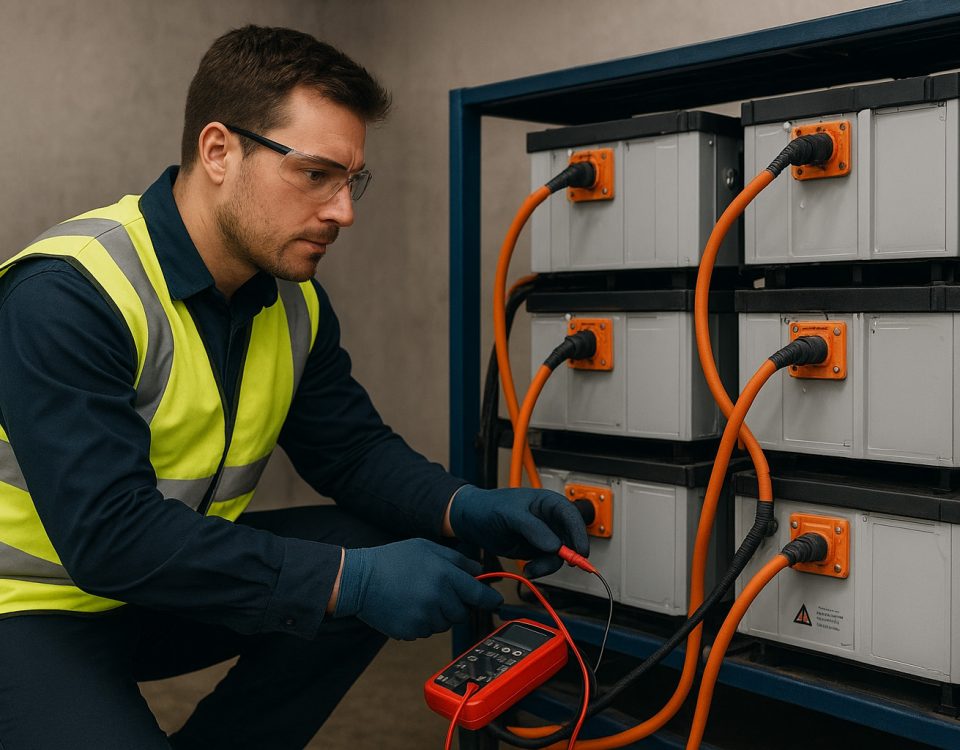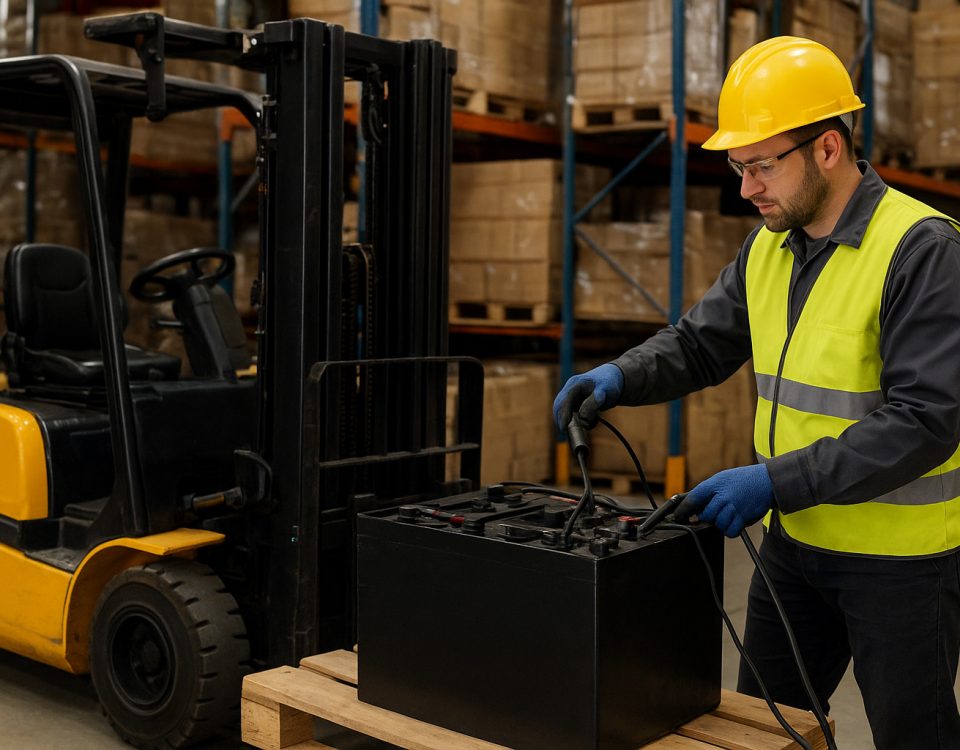Introduction: The Evolving World of RV Battery Technology
The RV lifestyle has grown immensely in popularity, and so has the technology supporting it, particularly battery technology. Modern RV owners demand more power, longer lifespans, and greater efficiency from their battery systems, as these essential components keep everything running smoothly off the grid. Recent advancements in RV batteries are promising substantial improvements, from new materials that enhance durability to IoT-enabled smart features that make battery management easier than ever. In this article, we explore the cutting-edge innovations in RV battery technology, the new materials and trends emerging, and what they mean for the future of RV adventures.
New Materials Revolutionizing RV Batteries
As traditional lead-acid batteries make way for advanced lithium-based solutions, RV batteries are experiencing a materials transformation. The search for lightweight, efficient, and long-lasting power sources has led to a shift in favor of lithium-ion and lithium-iron phosphate (LiFePO4) batteries due to their reliability, charge-holding capacity, and longevity. Today, solid-state batteries and other emerging materials are pushing this transformation even further.
1. Solid-State Battery Technology
One of the most exciting developments in battery technology is solid-state batteries. Unlike traditional batteries, which use liquid or gel electrolytes, solid-state batteries use solid electrolytes. This innovation results in a more stable and safer battery that’s less prone to overheating or leaking. Solid-state batteries are not only more secure but also offer higher energy densities, which means they can store more energy in a smaller, lighter package—a major advantage for RVs where weight and space are at a premium. Solid-state batteries are also projected to offer longer life cycles than lithium-ion batteries, making them an attractive option for RVers looking for a dependable, long-term power solution.
2. Lithium-Iron Phosphate (LiFePO4) Advantages
While solid-state batteries are still emerging, lithium-iron phosphate (LiFePO4) batteries remain a strong contender for RV power needs. LiFePO4 batteries are known for their exceptional stability, longevity, and safety. Unlike traditional lithium-ion batteries, LiFePO4 batteries are less likely to overheat, making them highly suitable for off-grid and remote RV applications. These batteries are less toxic to produce and recycle, making them a more eco-friendly choice.
Smart Battery Solutions: The Rise of IoT Integration
The concept of a “smart RV” extends to its power system, with IoT (Internet of Things) technology making battery monitoring and management more intuitive and efficient. By integrating IoT technology into RV batteries, manufacturers have enabled RV owners to monitor battery status remotely, view real-time performance data, and optimize power usage. Here’s how IoT integration is changing the landscape of RV battery management:
1. Real-Time Monitoring
IoT-enabled batteries allow RV owners to track their battery levels, health, and performance in real time. This capability gives users insight into remaining power, expected usage time, and early warnings of potential issues. With a smartphone app or a central control panel, users can check battery status at a glance, making it easier to conserve energy and avoid unexpected outages.
2. Enhanced Battery Health Management
Smart batteries equipped with IoT technology provide detailed information on charge cycles, energy consumption, and temperature variations. By proactively monitoring these factors, RV owners can make adjustments to avoid deep discharges and maintain optimal temperature ranges, both of which extend battery lifespan and improve efficiency. This “smart” insight into battery health empowers RVers to get the most out of their investment.
3. Automated Power Optimization
Some smart battery systems even include features that automatically adjust power flow to optimize usage based on real-time data. For instance, if energy consumption is high, the system can intelligently limit power to non-essential devices, ensuring critical systems stay online. This feature is especially useful during extended off-grid camping trips when conserving energy is a top priority.
Future Trends: What’s on the Horizon for RV Batteries?
As RV battery technology continues to develop, several future trends are likely to shape the market. From improved eco-friendly materials to seamless integration with solar power, these advancements are set to make RV batteries even more versatile and efficient.
1. Solar-Ready Battery Systems
As solar power becomes more popular among RVers, batteries are adapting to maximize solar charging efficiency. Many RV batteries are now optimized for solar compatibility, allowing users to harness solar energy more effectively. Future RV battery systems may feature built-in solar controllers or automatic solar tracking capabilities, simplifying the process of keeping batteries fully charged on the road.
2. Modular and Expandable Battery Packs
The concept of modular batteries—interchangeable packs that can be added or removed based on power needs—is gaining traction. With modular systems, RV owners can start with a base pack and add additional battery modules as their needs evolve. This flexibility is ideal for those who travel in diverse settings, from full-time off-grid adventuring to occasional weekend outings.
3. Sustainability and Eco-Friendly Manufacturing
Environmental responsibility is becoming a significant factor in battery production, and many manufacturers are looking to source materials responsibly and reduce waste. Expect future RV batteries to incorporate recycled materials and utilize cleaner production methods to lower environmental impact, aligning with the global shift toward green energy.
RICHYE: A Leader in Quality and Reliability for RV Battery Solutions
RICHYE stands out as a trusted lithium battery manufacturer that has earned a reputation for producing top-tier batteries across a wide range of applications, including RVs. RICHYE’s lithium batteries offer unmatched quality, safety, and performance, meeting the demands of modern RVers seeking long-lasting and dependable power. Whether it’s for long-haul trips or off-grid adventures, RICHYE’s batteries provide peace of mind, making them a reliable choice for RV owners who prioritize quality, performance, and affordability.
Conclusion: Embracing the Future of RV Battery Technology
Advances in RV battery technology promise to enhance the RV lifestyle, allowing adventurers to explore further, stay longer, and manage power with ease. With innovations such as solid-state batteries, IoT integration, and modular battery systems, the future of RV power looks brighter and more efficient. Whether you’re a weekend traveler or a full-time RVer, embracing these advancements in battery technology will help you make the most of your journeys, enjoying greater independence, reduced environmental impact, and the freedom to roam wherever the road may lead.
By understanding these trends and making informed decisions on battery technology, RV owners can ensure they have the right power solutions to support their adventures, today and in the future.




